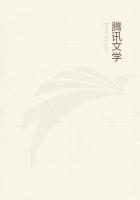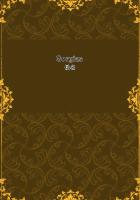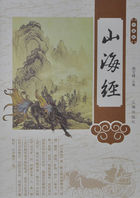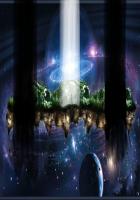These rules have been disregarded in recent times. The king of Dahomey himself is subject to the prohibition of beholding the sea, and so are the kings of Loango and Great Ardra in Guinea. The sea is the fetish of the Eyeos, to the north-west of Dahomey, and they and their king are threatened with death by their priests if ever they dare to look on it. It is believed that the king of Cayor in Senegal would infallibly die within the year if he were to cross a river or an arm of the sea. In Mashonaland down to recent times the chiefs would not cross certain rivers, particularly the Rurikwi and the Nyadiri; and the custom was still strictly observed by at least one chief within recent years. On no account will the chief cross the river. If it is absolutely necessary for him to do so, he is blindfolded and carried across with shouting and singing. Should he walk across, he will go blind or die and certainly lose the chieftainship. So among the Mahafalys and Sakalavas in the south of Madagascar some kings are forbidden to sail on the sea or to cross certain rivers. Among the Sakalavas the chief is regarded as a sacred being, but he is held in leash by a crowd of restrictions, which regulate his behaviour like that of the emperor of China. He can undertake nothing whatever unless the sorcerers have declared the omens favourable; he may not eat warm food: on certain days he may not quit his hut; and so on. Among some of the hill tribes of Assam both the headman and his wife have to observe many taboos in respect of food; thus they may not eat buffalo, pork, dog, fowl, or tomatoes. The headman must be chaste, the husband of one wife, and he must separate himself from her on the eve of a general or public observance of taboo. In one group of tribes the headman is forbidden to eat in a strange village, and under no provocation whatever may he utter a word of abuse.
Apparently the people imagine that the violation of any of these taboos by a headman would bring down misfortune on the whole village.
The ancient kings of Ireland, as well as the kings of the four provinces of Leinster, Munster, Connaught, and Ulster, were subject to certain quaint prohibitions or taboos, on the due observance of which the prosperity of the people of the country, as well as their own, was supposed to depend. Thus, for example, the sun might not rise on the king of Ireland in his bed at Tara, the old capital of Erin; he was forbidden to alight on Wednesday at Magh Breagh, to traverse Magh Cuillinn after sunset, to incite his horse at Fan-Chomair, to go in a ship upon the water the Monday after Bealltaine (May day), and to leave the track of his army upon Ath Maighne the Tuesday after All-Hallows.
The king of Leinster might not go round Tuath Laighean left-hand-wise on Wednesday, nor sleep between the Dothair (Dodder) and the Duibhlinn with his head inclining to one side, nor encamp for nine days on the plains of Cualann, nor travel the road of Duibhlinn on Monday, nor ride a dirty black-heeled horse across Magh Maistean. The king of Munster was prohibited from enjoying the feast of Loch Lein from one Monday to another; from banqueting by night in the beginning of harvest before Geim at Leitreacha; from encamping for nine days upon the Siuir; and from holding a border meeting at Gabhran. The king of Connaught might not conclude a treaty respecting his ancient palace of Cruachan after making peace on All-Hallows Day, nor go in a speckled garment on a grey speckled steed to the heath of Dal Chais, nor repair to an assembly of women at Seaghais, nor sit in autumn on the sepulchral mounds of the wife of Maine, nor contend in running with the rider of a grey one-eyed horse at Ath Gallta between two posts. The king of Ulster was forbidden to attend the horse fair at Rath Line among the youths of Dal Araidhe, to listen to the fluttering of the flocks of birds of Linn Saileach after sunset, to celebrate the feast of the bull of Daire-mic-Daire, to go into Magh Cobha in the month of March, and to drink of the water of Bo Neimhidh between two darknesses. If the kings of Ireland strictly observed these and many other customs, which were enjoined by immemorial usage, it was believed that they would never meet with mischance or misfortune, and would live for ninety years without experiencing the decay of old age; that no epidemic or mortality would occur during their reigns; and that the seasons would be favourable and the earth yield its fruit in abundance; whereas, if they set the ancient usages at naught, the country would be visited with plague, famine, and bad weather.
The kings of Egypt were worshipped as gods, and the routine of their daily life was regulated in every detail by precise and unvarying rules. The life of the kings of Egypt, says Diodorus, was not like that of other monarchs who are irresponsible and may do just what they choose; on the contrary, everything was fixed for them by law, not only their official duties, but even the details of their daily life . The hours both of day and night were arranged at which the king had to do, not what he pleased, but what was prescribed for him . For not only were the times appointed at which he should transact public business or sit in judgment; but the very hours for his walking and bathing and sleeping with his wife, and, in short, performing every act of life were all settled. Custom enjoined a simple diet; the only flesh he might eat was veal and goose, and he might only drink a prescribed quantity of wine. However, there is reason to think that these rules were observed, not by the ancient Pharaohs, but by the priestly kings who reigned at Thebes and Ethiopia at the close of the twentieth dynasty.

